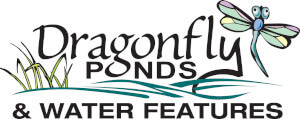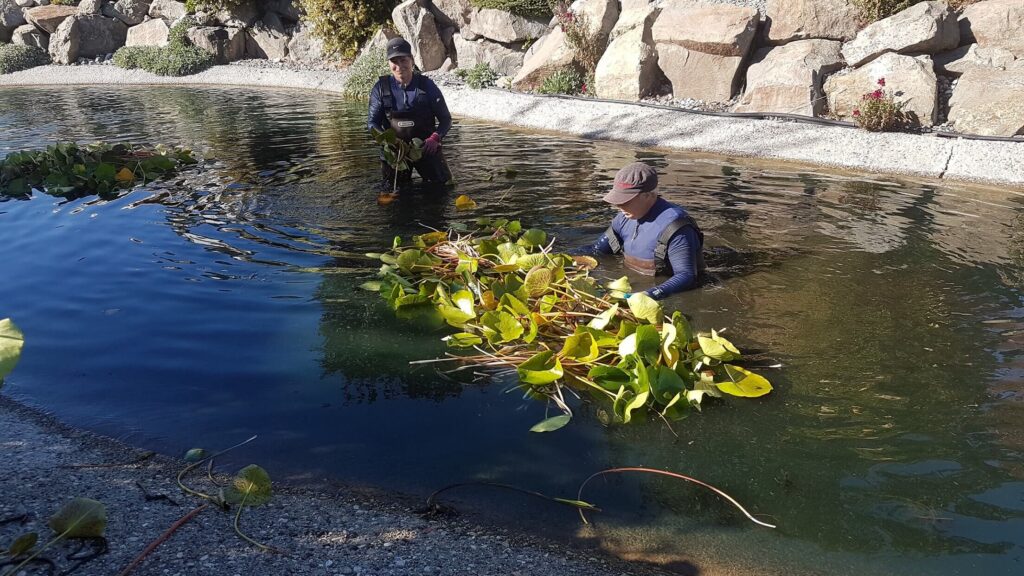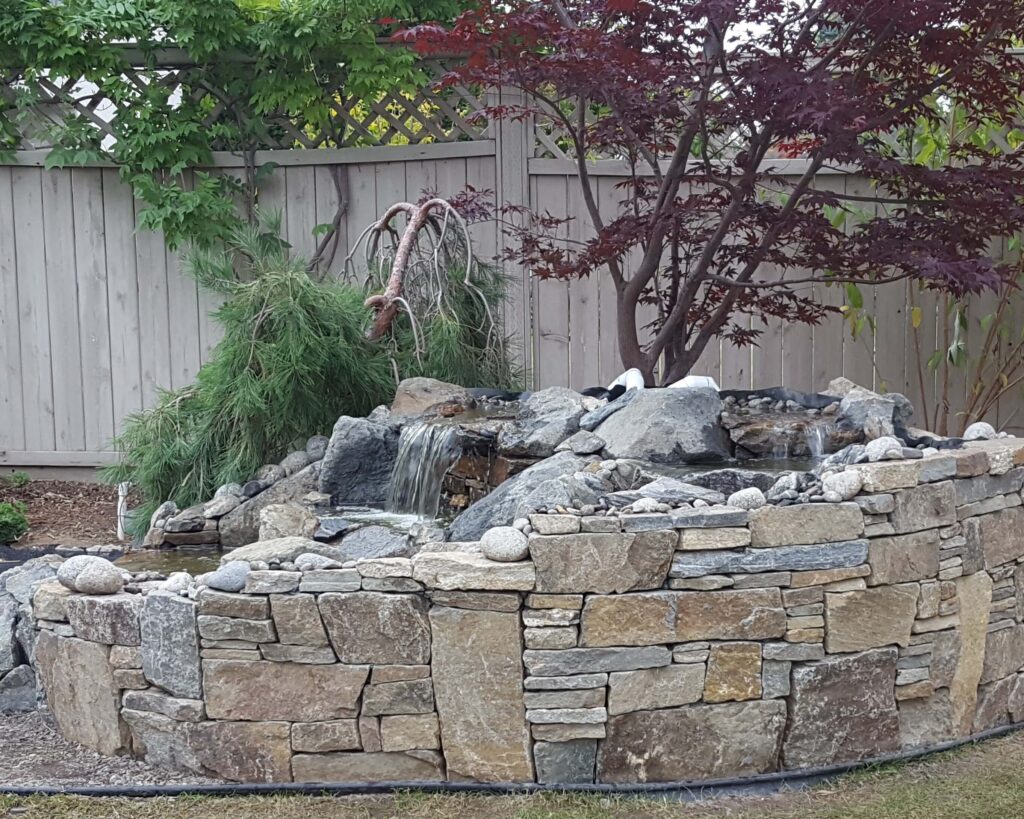A water feature requires more maintenance than your lawn does and if you neglect the lawn maintenance for 2 weeks, it become a lot more work. Ponds are the same, without regular maintenance, they can get away on you. To keep your pond in good shape it requires regular maintenance.
Maintenance Tasks
Netting out all of the grass clippings, leaves, needles, pine cones, buds and blooms will stop them from rotting in the pond and creating “fertilizer” for algae. Another form of nutrients people don’t think about but is also very hard on a pond ecosystem is what we put around the pond that ends up in the pond. Dirt, fertilizer and especially nutrient rich top dressings can get washed into the pond from irrigation and rain storms.
Fish Population
Overpopulation of fish is also a very common issue in the algae cycle. The more the fish eat, the more they poop. A good ratio for how many fish should be in the pond is: 1 inch of fish for each square foot of surface area (5 inch long fish = 5 square feet of surface area). With GOOD filtration, regular pond maintenance and backwashing the filter at least once a weeks, that fish load can be recalculated to a ½ inch of fish per square foot (5 inch fish = 2 1/2 square feet). A lot of people will be shocked when they realize that the pond is hugely overpopulated but it really comes down to the ponds ability to deal with all of the nutrients.
A larger fishload requires additional maintenance and more filtration. If you have a proper ratio of goldfish in your pond, there should be enough food in the pond where you don’t need to feed them and they will eat the algae Pond maintenance includes netting out organics, backwashing filters, trimming plants, lily upkeep and scrubbing algae off rocks and netting it out.
Pond Filters
A filter is a real benefit for a pond. A filter is designed to remove excess nutrients and help keep your water feature a healthy ecosystem. The pump sucks in the nutrients (rotting organic matter and fish poop) which get caught up in the filter media, and then the backwash feature allows you to pump out these extra nutrients.
We have worked with just about every filter system you can imagine and unfortunately most home and store-bought systems are not effective. An efficient filter has a backwash system that squeezes the sponges and all the collected nutrients should come out the backwash hose looking like chocolate milk. This is not the industry norm, a lot of filters either scrape the sides of the sponges, use water flow to try and push muck out from plastic balls, or worse, no real backwash mechanism.
We have only found one filter that is effective and is the only one we will install. Even the filter we use, we have to modify it to make it work more efficiently and be easier to use. This filter also has a UV system to help keep your water clear. It is very important to know that if you get a filter, it has to be backwashed every week if not more, otherwise the filter gets full and the muck just goes back into the pond.
Quick Fact: A pond UV light will only keep your water clear, and has a limited lifespan before the bulb needs to be replaced.
Seasonal Maintenance
Spring start ups require a quick check on all of the equipment to make sure it is operating correctly and if there are any leaks. A thorough clean out of organic matter is very important or a drain/vacuum out if there is obvious sludge in the bottom of the pond. If you have an air pump (recommended), put the air stones back down to the bottom of the pond. I really encourage customers to keep an eye on their ponds water level for the first couple days after startup, to make sure it is holding water as winter and animals can cause issues.
Winter shut downs involve getting as much organic matter out as possible with a net. (Spring is the time to drain). Ensure that your heat ring is working! If you use a air pump. please bring the air stones up closer to the surface and we prefer to put them closer to the heat ring. an air pump is backup in case the heat ring fails. Please check on the heat ring throughout the winter.
Important Note: A heat ring will keep a small hole in the ice and this is critical as it allows the gasses from the rotting organic matter and fish poop to escape. If the surface freezes solid and this gas builds up, the pond can get very toxic to the point that the fish die. PLEASE be careful if you try and put a hole in the ice, your kindness can kill your fish. Chopping a hole in the ice would be similar to you waking up to a clap of thunder right above your house and shock them to death.


